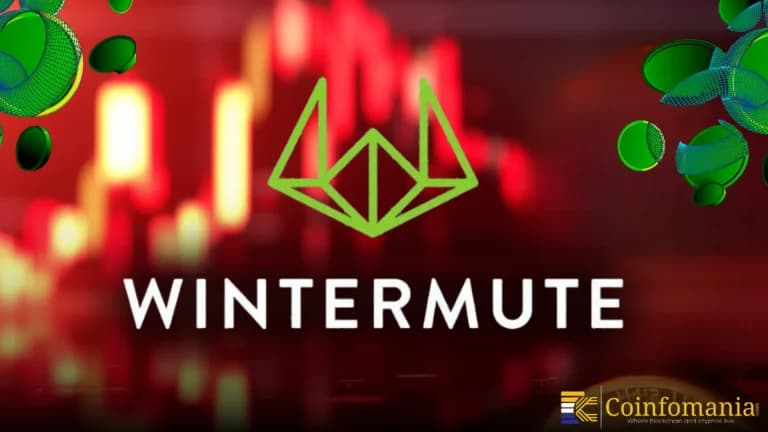CZ Reacts to Elon Musk Grok 3.5 Usage, Says ‘Many Versions Exist’
CZ reacts to Elon Musk's Grok 3.5 push to rewrite human knowledge, raising concerns about AI control, and Web3 decentralization.

Quick Take
Summary is AI generated, newsroom reviewed.
CZ questioned Grok 3.5's aim to rewrite knowledge, citing the role of history, opinion, and political influence.
Cas Abbé warned the move mirrors themes from dystopian fiction, sparking Web3 community concerns.
Grok 3.5, built by xAI, focuses on reasoning and inference, but raises risks around unverifiable and misleading AI outputs.
On June 21, former Binance CEO Changpeng Zhao (CZ) tweeted about the rising debate over AI models rewriting human knowledge. His tweet on X, “Will be fun to see how this plays out,” referenced Elon Musk’s claim about Grok 3.5. Musk stated that the model aims to rewrite and clean the entire corpus of human knowledge. Web3 leaders, including Binance’s Cas Abbé, responded critically, warning about dystopian implications. The new capabilities of Grok 3.5, developed by xAI, emphasize advanced reasoning and inference. The announcement triggered intense discussions around AI’s trustworthiness, political influence, and its uncertain role in reshaping scientific and cultural narratives globally.
Grok 3.5 Plans to Rewrite the Entire Corpus of Knowledge
Grok 3.5, developed by Elon Musk’s xAI, aims to delete factual errors and add missing data to existing human knowledge. On June 21, Musk stated, “We will use Grok 3.5…to rewrite the entire corpus of human knowledge.” He further suggested calling it Grok 4 due to its advanced features. Grok 3.5 focuses on reasoning, not just retrieval, making it capable of inference beyond its training set. The model can hypothesize and synthesize information in a way that resembles original thought. Researchers compare it to a scientist brainstorming unsolved mysteries. The architecture likely includes larger context windows and reinforcement learning from human feedback.
Web3 Leaders Raise Ethical and Political Concerns
The response from the Web3 space came swiftly. Cas Abbé, Web3 Growth Manager at Binance, replied to CZ’s tweet, “Rewriting the entire corpus of human knowledge is how every dystopian novel starts.” The comment echoed broader fears over political manipulation and centralized control over knowledge. CZ added that knowledge involves opinions and history, both of which are debated globally. He noted that many countries seek their own AI models to reflect cultural contexts. This desire points to rising concerns that AI could reflect specific ideological narratives. Grok 3.5’s “pro-truth” pitch by xAI adds another layer of political undertone, as Musk positions it against mainstream AI platforms.
Innovative Power or the Ultimate Hallucinator?
Grok 3.5 brings both promise and risk. The model may aid scientific discovery by generating hypotheses for unknown drug compounds or climate engineering. It could inspire breakthroughs in speculative fields where no concrete data exists. Its ability to “fill in the gaps” might allow rapid innovation. However, concerns exist about unverifiable content. If an AI’s answer lacks a clear source, verifying the truth becomes difficult. Researchers warn that such models can confidently present incorrect facts. Grok 3.5 may produce persuasive but false ideas, fueling misinformation. Some label it the “ultimate hallucinator,” capable of crafting coherent conspiracy theories or fictional science with a dangerous impact.
Grok 3.5 Positioned as xAI’s Alternative to Mainstream AI Giants
Grok 3.5 operates under xAI, Musk’s AI startup created to rival OpenAI and DeepMind. Musk criticizes existing models for political bias and censorship. He presents Grok as a freer, more “pro-truth” alternative. This positioning taps into the cultural and ideological divide in AI development. Technical details of Grok 3.5 remain unclear, but speculation includes advanced neural networks, knowledge graphs, and unsupervised learning. The model emphasizes confidence and fluency, prioritizing natural delivery over traceability. While this makes it sound more human-like, it raises questions about the reliability of the content.
Innovation, Regulation, or Misinformation?
Grok 3.5 stands at the intersection of innovation and ethical risk. The model’s reasoning capabilities may benefit scientific exploration, creative arts, and complex engineering. But trust and transparency remain challenges. Web3 voices continue to warn against letting any single AI rewrite collective understanding. CZ’s tweet reflects broader unease in decentralized communities. Musk’s approach signals an ideological shift in AI. As xAI pushes ahead, industry observers watch closely. Whether Grok 3.5 becomes a tool for human advancement or a generator of confident fiction will depend on regulation, openness, and critical review. The outcome will shape AI’s role in the digital knowledge era.
References
Follow us on Google News
Get the latest crypto insights and updates.


